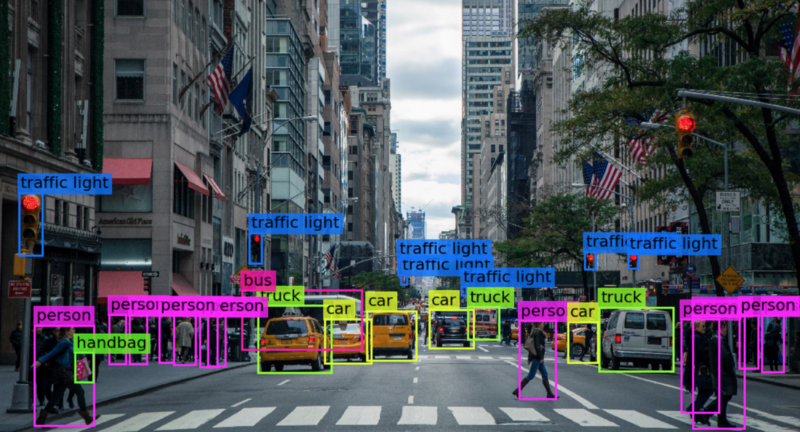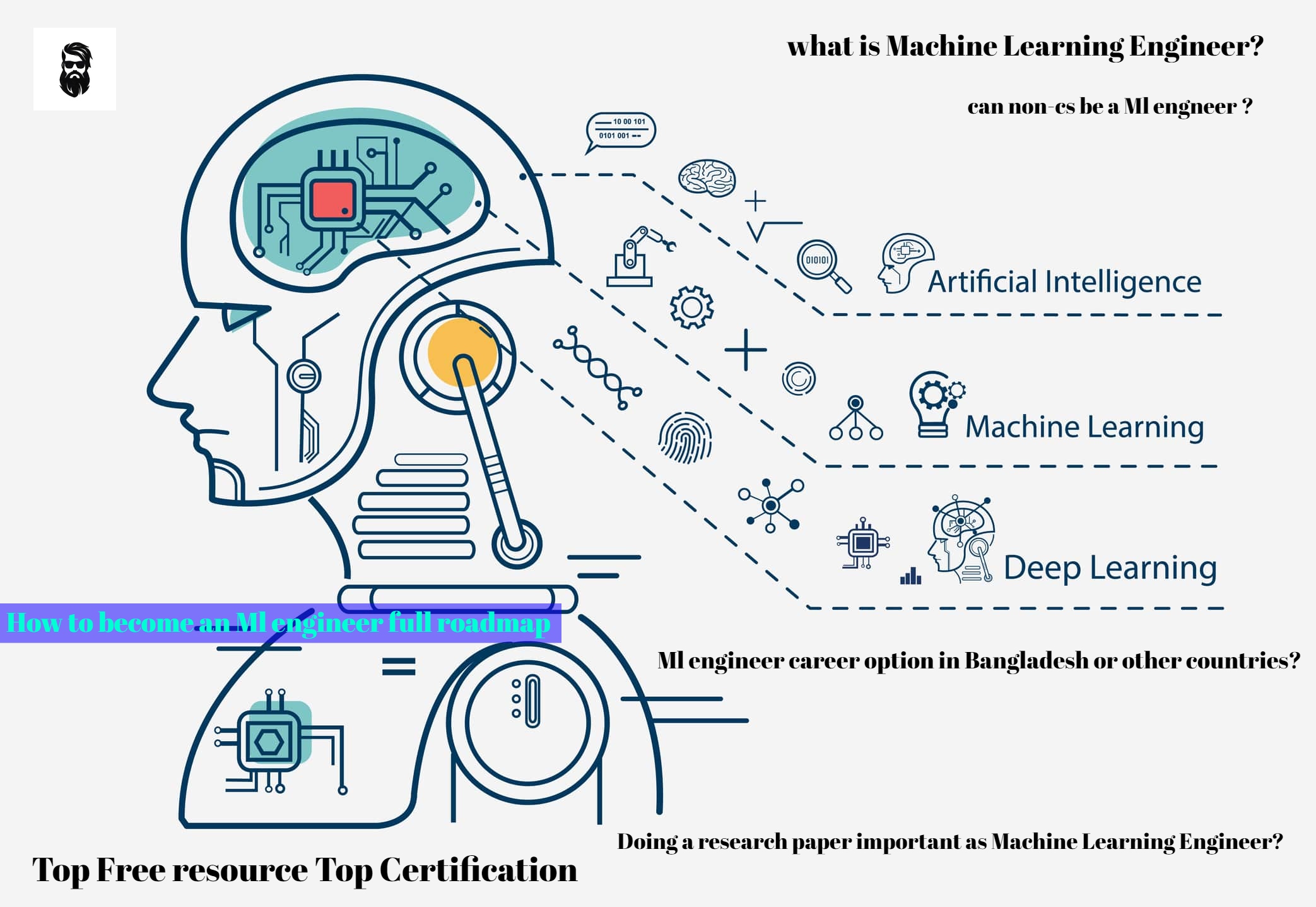How to become Computer Vision Engineer
A Computer Vision Engineer is a type of engineer who specializes in developing algorithms and systems that can interpret, analyze, and understand visual data from the world around us. This visual data can include images, videos, and 3D data, and the applications of computer vision are wide-ranging and diverse.
Computer Vision Engineers typically work on developing machine learning models and computer vision algorithms that can extract meaningful information from visual data. This may involve developing object recognition systems, image and video classification systems, 3D reconstruction systems, or facial recognition systems, among other things.
The work of a Computer Vision Engineer can be applied in a wide range of industries, including healthcare, automotive, security, robotics, entertainment, and more. Computer Vision Engineers typically have a background in computer science, electrical engineering, or a related field, as well as experience with machine learning and computer vision tools and libraries.
is Computer Vision Engineer is a good career option on 2023
Yes, Computer Vision Engineering is an excellent career option in 2023 and beyond. Computer vision is a rapidly growing field with a wide range of applications, including robotics, autonomous vehicles, medical imaging, security, and many others. The increasing availability of visual data and advancements in artificial intelligence and machine learning have driven the growth of computer vision and created new opportunities for innovation and development.
Computer Vision Engineers are in high demand, with a strong job outlook and competitive salaries. According to Glassdoor, the average salary for a Computer Vision Engineer in the United States is over $120,000 per year.
As the technology continues to evolve, Computer Vision Engineers will play a critical role in shaping the future of computer vision and its applications. With the right education, training, and experience, you can build a rewarding and fulfilling career in this field.
how many things we have to learn as Computer Vision Engineer?
As a Computer Vision Engineer, there are several things you would need to learn to be successful in your career. Here are some of the key areas:
- Mathematics and Statistics: Computer vision requires a strong foundation in mathematics and statistics, including linear algebra, calculus, probability theory, and statistical inference.
- Programming and Software Development: You will need to be proficient in programming languages such as Python, C++, and MATLAB, as well as software development tools and practices.
- Computer Vision Algorithms and Techniques: You will need to have a deep understanding of the fundamental computer vision algorithms and techniques, such as object detection, image segmentation, feature extraction, and deep learning.
- Machine Learning: You will need to have a strong background in machine learning techniques, including supervised and unsupervised learning, reinforcement learning, and deep learning.
- Image and Signal Processing: You will need to understand image and signal processing techniques for filtering, transforming, and analyzing visual data.
- Data Structures and Algorithms: You will need to have a strong foundation in data structures and algorithms, which are critical for developing efficient and scalable computer vision systems.
- Industry-Specific Knowledge: Depending on the industry you work in, you may need to develop specific domain knowledge, such as medical imaging, autonomous vehicles, or security.
To become a Computer Vision Engineer, you would typically need a degree in computer science, electrical engineering, or a related field, and experience working with computer vision tools and libraries. Ongoing learning and staying up-to-date with the latest developments in the field is also essential to success as a Computer Vision Engineer.
professional Computer Vision Engineer career roadmap
Here is a potential roadmap for becoming a professional Computer Vision Engineer:
- Get a strong foundation in computer science, mathematics, and programming by earning a bachelor's degree in computer science, electrical engineering, or a related field.
- Gain experience in software development by working on coding projects, participating in coding competitions, or contributing to open-source projects.
- Develop a strong foundation in computer vision algorithms and techniques, including feature extraction, image segmentation, and object detection. This can be achieved through online courses, books, and tutorials.
- Develop skills in machine learning, including deep learning, by taking online courses, reading books, and practicing on real-world projects.
- Build your skills in image and signal processing, including filtering, transforming, and analyzing visual data, through courses, books, and tutorials.
- Gain practical experience by working on real-world projects, such as developing object detection systems or 3D reconstruction systems.
- Consider earning a graduate degree in computer science, electrical engineering, or a related field, with a focus on computer vision and machine learning.
- Keep up with the latest developments in the field by attending conferences, participating in online communities, and reading research papers.
- Build a portfolio of projects that demonstrate your skills and expertise in computer vision, machine learning, and software development.
- Look for job opportunities in industries that use computer vision, such as healthcare, automotive, security, and robotics, and keep building your skills and expertise to stay current and competitive in the field.
It's worth noting that this roadmap is not a strict guideline, and different individuals may take different paths to become successful Computer Vision Engineers. The key is to gain a strong foundation in the essential skills and knowledge and to continuously learn and grow to stay competitive in this rapidly evolving field.
top country hires Computer Vision Engineer
Computer Vision Engineers are in high demand worldwide, and there are many countries that hire professionals in this field. Here are some of the top countries that are known for their strong market for Computer Vision Engineers:
- United States: The United States is home to many leading technology companies and startups that are hiring Computer Vision Engineers. Cities such as San Francisco, Seattle, and New York City are popular destinations for these professionals.
- China: China has a rapidly growing market for Computer Vision Engineers, with many technology companies and startups hiring in this field. Cities such as Beijing, Shanghai, and Shenzhen are popular destinations for these professionals.
- United Kingdom: The United Kingdom is home to many leading companies in computer vision, including ARM, DeepMind, and Imagination Technologies. Cities such as London, Cambridge, and Bristol are popular destinations for Computer Vision Engineers.
- Germany: Germany has a strong market for Computer Vision Engineers, with many leading companies in the automotive, robotics, and automation industries. Cities such as Munich, Berlin, and Stuttgart are popular destinations for these professionals.
- Canada: Canada has a growing market for Computer Vision Engineers, with many leading technology companies and startups hiring in this field. Cities such as Toronto, Vancouver, and Montreal are popular destinations for these professionals.
It's worth noting that the demand for Computer Vision Engineers is increasing rapidly worldwide, and there are many other countries where you can find job opportunities in this field.
A free resource for learning Computer Vision Engineer
There are many free resources available for learning Computer Vision, and here are some of the popular ones:
- OpenCV: OpenCV is an open-source computer vision library that provides a wide range of algorithms for image and video processing, feature detection, and machine learning. The library is available for C++, Python, and Java, and it has a large community of users and contributors. OpenCV has extensive documentation and many tutorials and examples that can help you get started with computer vision.
- Stanford CS231n: This is a popular online course on deep learning for computer vision, offered by Stanford University. The course covers a wide range of topics in deep learning, including convolutional neural networks, recurrent neural networks, and generative models. The course is available for free on YouTube, and it also has lecture notes and assignments available online.
- Coursera: Coursera offers a wide range of courses on computer vision and machine learning, including deep learning, image processing, and object detection. Many of these courses are free to audit, and you can also get a certificate by paying a fee.
- Fast.ai: Fast.ai is an online course on deep learning that covers a wide range of topics in computer vision and natural language processing. The course uses the PyTorch library and provides practical examples and projects that can help you learn deep learning in a hands-on way.
- MIT OpenCourseWare: MIT OpenCourseWare offers a wide range of courses on computer vision and machine learning, including Computer Vision and Computational Photography and Convex Optimization. These courses are available for free and provide lecture notes, assignments, and exams.
- GitHub: GitHub is a code hosting platform that has a large community of users and contributors. You can find many open-source projects on computer vision on GitHub, and you can learn from the code and collaborate with other developers.
There are many other free resources available for learning computer vision, and the key is to find the ones that suit your learning style and goals.









